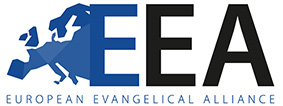Fourth mark of mission: Transform Society
- Deeply Rooted, NEWS, NEWSLETTERS, SLIDER
- April 9, 2024
Between June 6-9, 2024, the European Union is organising elections for the European Parliament. As the European Parliament will have an important voice in shaping the Union for the next five years, we call on all Christians to cast their votes. Let us explain why we feel your vote matters.
The European Parliament is one of the three main bodies of the European Union. The other two institutions are the European Council and the European Commission (more on these below). The Parliament is the only body that is directly elected by European citizens. Your vote counts.
The 705 members of the European Parliament represent the voice of over 500 million citizens from 27 member states. Members are elected for a five years’ term. With elections set for June 6-9 of this year, the next Parliament will sit until 2029.
The European Parliament plays a crucial role, amending, negotiating, and adopting new laws. Furthermore, it approves or reject the European Commission, and it has the power to approve the budget of the European Union.
The Parliament, representing you and me, plays an important part in shaping the future of the European Union, and therefore of our lives. This term, the Parliament, for example, debated joint responses to threats like Covid-19 and the Ukraine war and related sanctions against the Russian Federation. In addition, it discussed and eventually adopted new laws on the environment, migration and asylum, and the rules and limitations of Artificial Intelligence applications. These new laws will have an impact on all of us. And these examples are just a fraction of all the topics discussed.
Although the Parliament might have no direct authority over healthcare, family issues, and education, it adopted positions on women’s rights, the definition of marriage, on what constitutes a family, and other moral and ethical issues as well. Over time, these positions might influence the work of the European Commission and our governments as well.
This is all to say that nobody can be indifferent about European elections, about who will be representing you and your nation in the European Parliament. Your vote or no-vote will have an impact. That’s why the European Evangelical Alliance (EEA) calls on all Europe’s more than 20 million Evangelicals to participate in the European elections, June 6-9, 2024.
As EEA, we won’t tell you how to vote but we trust that our articles “Considering politics with Biblical lenses” and “Hope in stormy political times”, and “Truth, trust and algorithms”, plus our questions to consider, will help you to elect the next Parliament responsibly. It all starts with prayer. Therefore, we invite you to take a look at our suggested prayer points for the European elections too.
The European Council consists of all government leaders of the EU member states. They set the general course and priorities of the Union. Charles Michel is the current president of the Council. Decisions of the council are laid down in Council conclusions.
The European Commission is formed by one commissioner for each member state. These commissioners, however, are not representing their country. They are responsible for a certain policy area and should act in the best interest of the Union as a whole. The President of the Commission is proposed by the Council and voted in by the Parliament. The current President is Ursula von der Leyen.
The President selects the Commissioners from those suggested by the member states and decides what portfolios they’ll be responsible for. The Parliament then adopts or rejects the full college of commissioners (not individual members). Once adopted by the Parliament, the Council installs the Commission. The Commission monitors whether member states honour their obligations. Moreover, the Commission can propose new legislation that will then be discussed, amended, and voted on by the Parliament. Once Parliament, Commission and Council agree on the final text, the law is adopted.





The Evangelical Alliance was originally created in London in 1846. A number of founding members were representing European countries. The European Evangelical Alliance (EEA) was founded in 1951. The EEA exists to foster unity and evangelical identity and provide a voice and platform to 23 million European evangelical Christians. The mission of the EEA is to CONNECT for com-mon purpose, EQUIP for integral mission and REPRESENT with a united voice. It is a grassroots movement from all Protestant traditions present in 36 European countries. The Brussels office of the EEA promotes active citizenship of its constituency and represents it to the European Institutions. The EEA is part of the World Evangelical Alliance (www.worldea.org)
Josefstr. 32
8005 Zürich
Switzerland
Rue Belliard 205/14
1040 Brussels
Belgium
Reuterstr. 116
53129 Bonn
Germany
This site is protected by reCAPTCHA and the Google Privacy Policy and Terms of Service apply.
